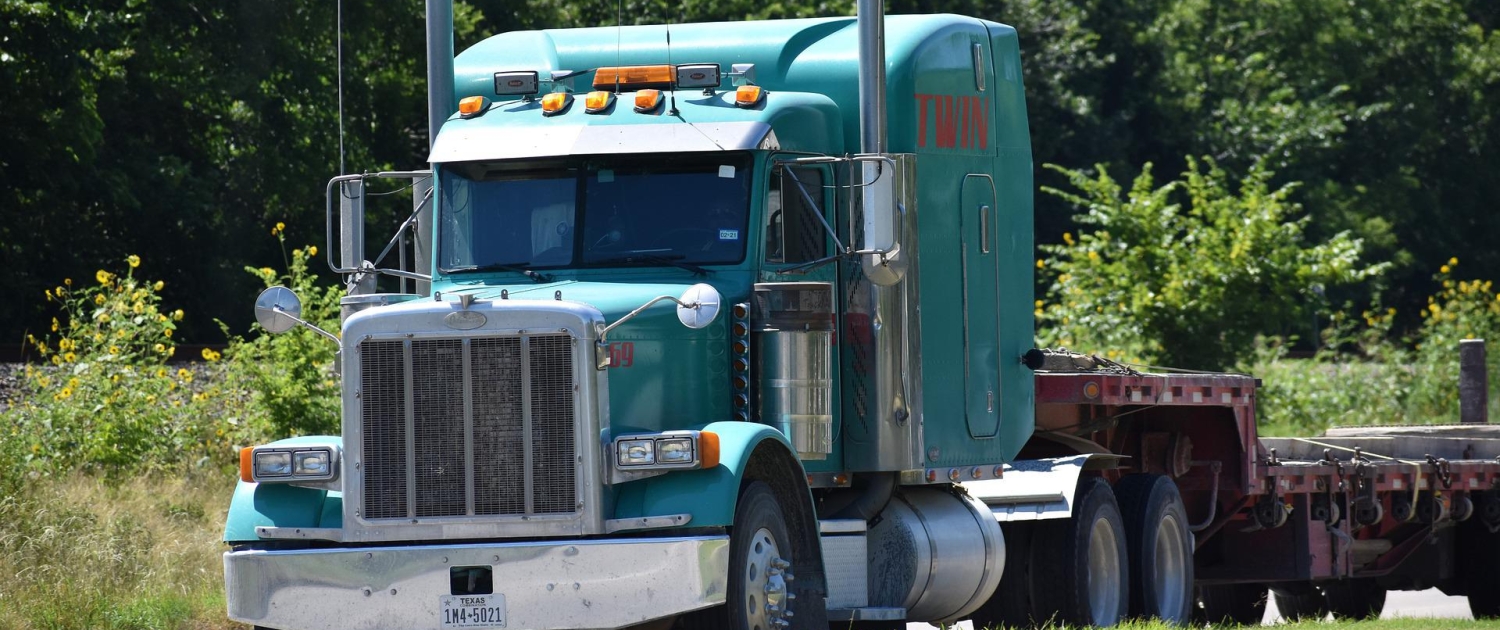 If you’re a truck driver looking for a new challenge, look no further than flatbed driving. Some say that flatbed drivers have the most challenging jobs and dangerous jobs on the road.
If you’re a truck driver looking for a new challenge, look no further than flatbed driving. Some say that flatbed drivers have the most challenging jobs and dangerous jobs on the road.
If you’re up for the adventure, flatbed trucking can be a great paying job. But before you think about making the leap, here are a few things to keep in mind.
1. Flatbed Driving: The Basics
 This should go without saying, but to haul a flatbed trailer, you’ll need a Class A CDL. Luckily, there are no extra endorsements needed on top of that. The only exception is the New York state metal coil endorsement, but you only need to worry about this if you’re a NY resident.
This should go without saying, but to haul a flatbed trailer, you’ll need a Class A CDL. Luckily, there are no extra endorsements needed on top of that. The only exception is the New York state metal coil endorsement, but you only need to worry about this if you’re a NY resident.
Flatbed drivers are in high demand and because of this, the pay for these jobs are typically more competitive than other driving jobs. The high demand for flatbed drivers is directly linked to the skills required to be a successful flatbed driver. Unlike dry van or reefer jobs, flatbed jobs often require more physical work and attention to detail to safely secure the loads.
We talked to Marian K., a flatbed driver, who shared his advice to those looking to get into flatbed driving,
“Take your time, do it right the first time. Speed will come with experience. Ask questions, observe others, and then ask more questions.”
Learning how to become a successful flatbed driver takes time as well as experience on the job. Finding other drivers who are willing to help you learn and answer your questions is key to succeeding quicker.
2. Securing Your Cargo is Key
 For flatbed drivers, making sure their loads are secure is one of the most important aspects of the job. Here are some things to keep in mind about securing flatbed loads.
For flatbed drivers, making sure their loads are secure is one of the most important aspects of the job. Here are some things to keep in mind about securing flatbed loads.
Oversized Loads
While all flatbed drivers need to learn how to secure their load, hauling oversized freight requires even more skill. These flatbed drivers carry unusually shaped freight that does not fit inside the confines of a standard sized trailer. As such, these loads need plenty of support to keep them secure. Check out the FMCSA handbook that covers all of the topics of cargo securement for oversized loads.
Conestoga Trailers
Some flatbed drivers will have a conestoga trailer instead of a typical flatbed trailer. These trucks have an accordion-like tarp that makes loading, unloading, and securing much more convenient for the driver as well as providing shelter for your freight without the need of manual tarping.
Bad Weather
Not only do the loads need to be secured, but flatbed drivers also need to make sure freight is protected during the event of inclement weather.
We talked to Brittney M., an experienced flatbed driver who shared her advice on the subject:
“Always check your securement. If you think you have enough straps or chains, add one or two more. You can never be too safe. Make sure your tarps are tight, loose tarps can cause it to rip or your load to get wet.”
Securing freight during inclement weather not only protects the load, but it also protects other drivers on the road. Without this extra precaution, the tarps could fly up while driving, causing a major distraction and hazard to other drivers and a hefty fine for the driver.
3. Take the Extra Steps for Safety
 When it comes to loading, unloading, and securing, following specific safety steps is essential. This attention to detail when it comes to safety is what sets flatbed drivers apart from other drivers.
When it comes to loading, unloading, and securing, following specific safety steps is essential. This attention to detail when it comes to safety is what sets flatbed drivers apart from other drivers.
It is highly recommended that drivers avoid attending to freight while on the side of the roadway. Taking time to secure loads while at a truck stop or in a parking lot will provide flatbed drivers with a much safer environment.
In addition, wearing the right clothes as a flatbed driver is also key. Investing in shoes with a good, no-slip grip will be helpful, especially during rain or snow. Having something that covers your clothes can also be helpful, especially when loading and unloading freight that potentially has mud or other elements covering it.
Overall, flatbed haulers are one-of-a-kind drivers, with a very specific set of skills. Taking the time to master these will not only allow you to become a competent flatbed driver, but to stand out from the crowd of other drivers.
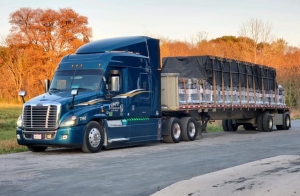
Looking for a Flatbed Job?
Drive My Way has partnered with carriers nationwide who are hiring flatbed truck drivers. Create a free profile to be matched with a flatbed job that meet your needs.

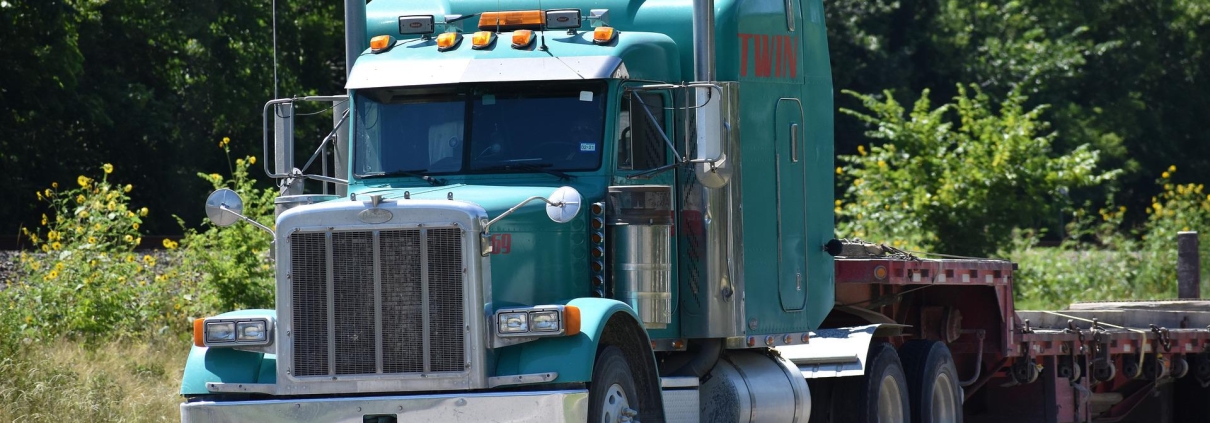
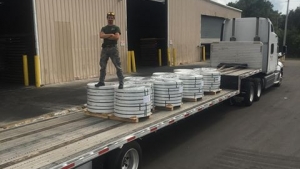

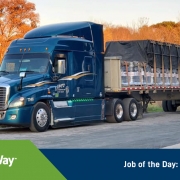
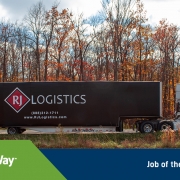
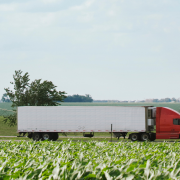
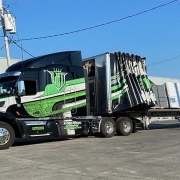

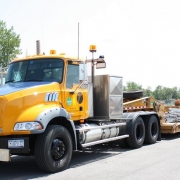




Thanks for making it clear how people need more training and skill to haul an oversized load on a flatbed. My dad wants to buy a flatbed and then haul a giant piece of equipment for a job he was offered. He has never done this before so I’ll try and convince to trust professional that has experience and skill over himself.
Thanks for the tip that truck tarps would be very important in keeping cargo intact when going on a long trip. My uncle will be buying a large amount of hay and wood chippings for his farm soon because he wants to start taking care of horses. Since it gets quite windy where he lives, have really does need a very effective truck tarp.
It’s good to know that drivers for oversized loads need even more skill than typical flatbed drivers. My brother needs to find a heavy haulage service to transport construction equipment to the site of his new project, and I imagine at least one of the loads will be classified as oversized. Asking about oversized load training should help him find a reliable heavy haulage service to work with, so I’ll be sure to pass along that tip!
Most companies hired drivers with experience, so better learn it somewhere else.
If you really want to be a flatbed operator, keep in mind, how you secure your load will affect everybody’s lives on the highway. If no experience, choose a company that offers training, then check that company’s safety rating. There are rules that apply to load securement that go beyond normal truck driving requirements. Some shippers will tell the driver, that he/she can secure items , that are in direct violation of what is required by the regulations. As the driver, you have the choice to either do it the shippers way or the legal and right way.
Being a flatbed operator is not for everyone. Dont sit in the truck and let the trainer do all the work. And question the trainer if the trainer is doing it wrong.
Thanks for explaining how it takes skill to secure and haul a heavy load. I think people assume it is easy and nay trucker can do. It could cost a ton of money if it falls so only the best truckers should do it in my opinion.